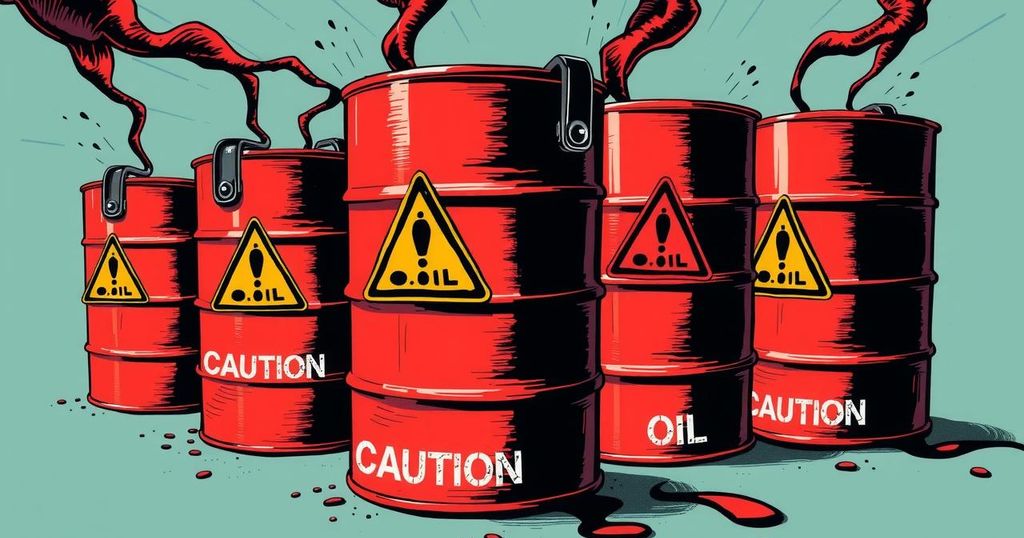Trump Threatens Russia with Secondary Tariffs Amidst Ukraine Negotiations

President Trump threatened to impose secondary tariffs on Russian oil if negotiations regarding Ukraine fail, reflecting growing impatience with President Putin. He indicated similar measures could apply to Iran in case of unsuccessful diplomatic efforts. Trump’s comments signify a strategic use of tariffs to influence foreign relations, despite concerns about enforcement capabilities.
In a recent interview on “Meet the Press,” President Donald Trump presented his most critical remarks regarding President Vladimir Putin, indicating he may impose secondary tariffs on oil sourced from Russia if negotiations for a peace agreement in Ukraine fail. He also mentioned that similar measures could apply to Iran.
Mr. Trump conveyed his dissatisfaction with ongoing negotiations and suggested that tariffs ranging from 25% to 50% on Russian oil could be enacted imminently. He indicated plans to speak with President Putin about these developments within the week.
Previously, Mr. Trump has described secondary tariffs as taxes applied to imports from nations that trade with targeted countries, highlighting his willingness to utilize tariffs to achieve his domestic and international objectives.
Additionally, Mr. Trump expressed anger towards Mr. Putin for undermining the credibility of Ukrainian President Zelensky and for discussing potential regime change in Ukraine. He hinted that such talks could derail negotiations altogether.
While there is currently a tenuous cease-fire between Russia and Ukraine, ongoing tensions and negotiations regarding Iran’s nuclear capabilities remain. Mr. Trump emphasized the possibility of military action should diplomatic efforts with Iran not succeed.
Moreover, he recently enacted an executive order aimed at countries that import Venezuelan oil, further illustrating his intention to apply economic pressure on foreign nations to further U.S. interests. Some experts, however, have raised concerns about the effectiveness of existing sanctions and whether new tariff measures could be successfully implemented.
President Trump’s recent remarks suggest a significant shift in his approach towards Russia and Iran, underscoring his commitment to utilizing secondary tariffs as a potential mechanism to influence foreign negotiations. His criticism of Putin highlights an increasing impatience with ongoing conflicts, while the overarching theme remains his desire to leverage economic policies to achieve his goals. The viability of such actions and their enforcement remains a subject of debate among experts.
Original Source: www.nytimes.com







